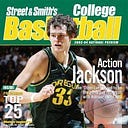Drag Me to Hell: When the cinematic experience is a devilish good time
The title sounds like it was thought up by some rascally rake who, upon first hearing the song Fly Me to the Moon thought, Hmm…OK…what would be a fun counterpoint to that?
Drag Me to Hell. Oh, yeah.
Experiencing this film this past Tuesday evening made quite the impression upon what might best be termed a “sensitive” sort of bloke, who, while never quite sneering at the pulpy entertainment provided by horror films, at least tried to condition himself to see through their veneer.
It’s just a succession of cheap tricks designed to poke and prod at your subconscious fears. To sell tickets. And the truth is, when you’re that guarded against something, the years steeling your conditional response, horror movies do begin to fall flat. As if that were cause for celebration. Wooooo me!
But life always seems to find a way through. Condition yourself all you want; at some point, in some context, it will grab you by the collar, pull you within inches of its face and remind you, with a fearsome shout, that your mass of skin, bones, and feeble thought is no match for emotional response conditioned throughout eons of evolution.
Sam Raimi, of Evil Dead fame, who’d made a return to horror with this film after his foray into big-time blockbuster fare, reminisced about the visceral memories he held of attending carnivals in a Vanity Fair interview published in the weeks ahead of the Drag Me to Hell’s initial release.
The sense memory, undimmed after however many years, of entering a haunted house: how loud the door sounded slamming shut behind you; the smell of stale beer and total immersion in the musty dark. The succession of noises that ensued; how it wasn’t important what kind of a sound it was. Why is a ghoul making that noise sat second-fiddle to its bone-rattling loudness. That’s what unsettled you.
The artistry and technical wizardry required to take those memories and convey them to an audience through the medium of film. Before the showing at the Drafthouse, where I watched Drag Me to Hell, one of the presenters (he works at the Pacific Film Archive, though I forget his name) related how Raimi has a habit in horror films of turning up the fear factor to 11. But rather than rely on quick bursts of fear, Raimi seizes upon your initial shock and then keeps that fear ratcheted up for supremely uncomfortable sequences.
And that’s what it felt like. These sequences that couldn’t have lasted more than a minute of screen time, yet felt like forever. Sounds like memories of unforgettable nightmares, when time stands still.
As I stumbled home, thoughts riddled with reverie, I puzzled over the reception horror gets as a genre. Not taken too seriously, like they’re the naughty brethren to the more prestigious fare. Run a Google search of horror films that have won Oscars, and you’ll titter at the titles that fall under its umbrella. They have to have a clever concept, masquerading as social utility. They can’t just be schlock, for God’s sakes.
But I’m reminded of the famous revelation James Murphy, of LCD Soundsystem fame, once had while hopped up on ecstasy in a club. As his inhibitions fell from him like well-cooked meat from the bone, he saw a great image crystallize in the skies of his mind’s eye: Dance music, baby. That was the answer. It’s another genre that was derided for years as silly, sugary stuff. But the fact is, dance music gets individuals in a crowd engaged. No pretense; just get people movin’, man.
How can you listen to certain songs and not tap along to the beat. And as many artists will tell you, the greatest compliment you can pay a song is with how much it moves you—quite literally so.
The timing of Drag Me to Hell’s release, about a year after the Great Recession began, inevitably led to claims that it was a timely film. The kind of concept-driven fare that could win an Oscar! But Raimi and his brother, Ivan, had written this screenplay in the 90s, and its theme was more timeless: human selfishness, tethered to career ambition. How ramifications often ensue from where we’d least expect them. From there, the film was about technique: Dunkirk-level sound production and gross-out effects produced with the intent of deriving the maximum response from an audience.
Is it manipulative? Sure. But watch any “silent” film worth its salt and note how important a role music plays. Emotional scenes ratcheted up tenfold thanks to it. Film is a manipulative medium. Here’s to the directors that don’t shy away from that fact.
